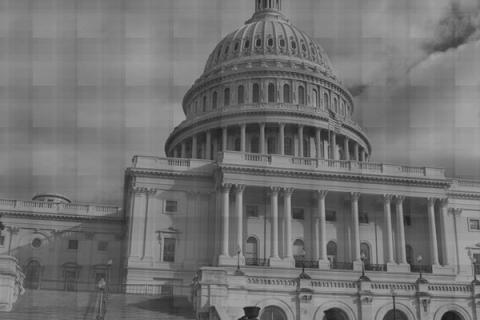 Tucson's mayoral election is shaping up to be a two-party race, but due to a series of petition signature challenges, it’s not the two parties you would expect. This November, voters in Tucson will head to the polls to cast their ballots for mayor and city council. In the mayoral election, the names of only two candidates will appear on the ballot: Democrat Jonathan Rothschild and one of two Green Party hopefuls, Mary DeCamp or Dave Croteau. The Green Party’s candidate will be nominated in a primary election on August 30th.
Tucson's mayoral election is shaping up to be a two-party race, but due to a series of petition signature challenges, it’s not the two parties you would expect. This November, voters in Tucson will head to the polls to cast their ballots for mayor and city council. In the mayoral election, the names of only two candidates will appear on the ballot: Democrat Jonathan Rothschild and one of two Green Party hopefuls, Mary DeCamp or Dave Croteau. The Green Party’s candidate will be nominated in a primary election on August 30th.
Were it not for a series of petition and eligibility challenges brought forward by Democratic Party activists, voters would have been afforded a wider choice in the race. A handful of other individuals filed for the election – including a Republican, a Democrat-turned-Independent, and an Independent-turned-Democrat – but all were stricken from the ballot in a series of court hearings held last week.
The various petition signature requirements for mayoral candidates in Tucson underscore the inequity of the ballot access regime that has been constructed by Democratic and Republican lawmakers. While Republican candidates need to gather just 1,060 signatures, Democrats must collect 1,642, and Independent candidates are required to obtain 2,596 valid signatures. In Tucson, a signature may be ruled invalid if the citizen in question is not a registered voter, does not live within the city limits, or signed a petition for another candidate in the race, according to the Arizona Daily Star. Signatures may also be ruled invalid on the basis of various technicalities, for instance, if the signer enters the wrong date next to his or her name.
Because ballot access petition signatures are often challenged by partisans of the major parties, candidates must collect many more signatures than are required by law in order to ensure that they will still qualify even if a significant number of signatures are stricken from their petitions.
Following challenges from Democrats represented by attorney Bill Risner, over 200 signatures submitted by Republican Shaun McClusky were ruled invalid, and he came up short of the 1,060 valid signatures necessary to qualify for the ballot. Independent candidate Pat Darcy, a former Democrat, submitted over 3,100 signatures in his mayoral bid, of which more than 900 were again challenged by Risner on behalf of Democrat Sam Almy. Ultimately, just over 600 were deemed invalid, disqualifying Darcy from the race, reports the Tucson Citizen.
At the hearing, Darcy pointed out the double standard apparent in the petition requirements for Independents and party candidates, and was disappointed that any signatures had been challenged at all, asking “What are they afraid of?” according to local media. Though such petition challenges are routinely filed by Democrats and Republicans in races across the country, the Arizona Daily Star reported that the wave of lawsuits in the Tucson mayoral race was “unprecedented,” the last such challenge having been filed in 1999.
Another candidate, Independent-turned-Democrat Marshall Home, withdrew from the race after his eligibility to run for Tucson mayor was challenged on the basis of residency requirements by Democratic Party activist Luke Knipe. Home ultimately withdrew his candidacy, but continues to raise eyebrows in the state. Though he changed his registration from Independent to Democrat before filing to run for mayor, he is also the chairman of a group called the Independent Rights Party, which aims to “stop the foreclosure racket sweeping the nation,” according to a press release from March announcing his candidacy. The group walks the walk. Over the course of the past month, Home filed paperwork stating that his Independent Rights Political Party Trust had taken ownership of more than twenty homes that had been foreclosed on by Fannie Mae, as reported by The Arizona Republic.
Since last week, at least one Democrat has filed to run as a write-in candidate, and a number of Republicans have stated that they are considering doing so themselves. Write-in candidates have just under a month to file for the race.
Having survived the Democratic Party’s ballot purge, Green party candidates Mary DeCamp and Dave Croteau have begun reaching out to local liberal-leaning groups. On Sunday, the two attended a meeting of the local chapter of Living Liberally to talk about their candidacies and the Green Party primary. DeCamp has previously run for city council, scoring 6% of the vote in 2009. Croteau was a candidate for Pima County Sheriff in 2000, and ran for mayor in 2007, garnering 28% of the vote. For more on DeCamp and Croteau, see the Tucson Citizen.
Due in no small part to the work of the Democratic party’s activists, the Greens are well-positioned to wage a competitive campaign in Tucson this year, and could score a major upset if they play their cards right.
